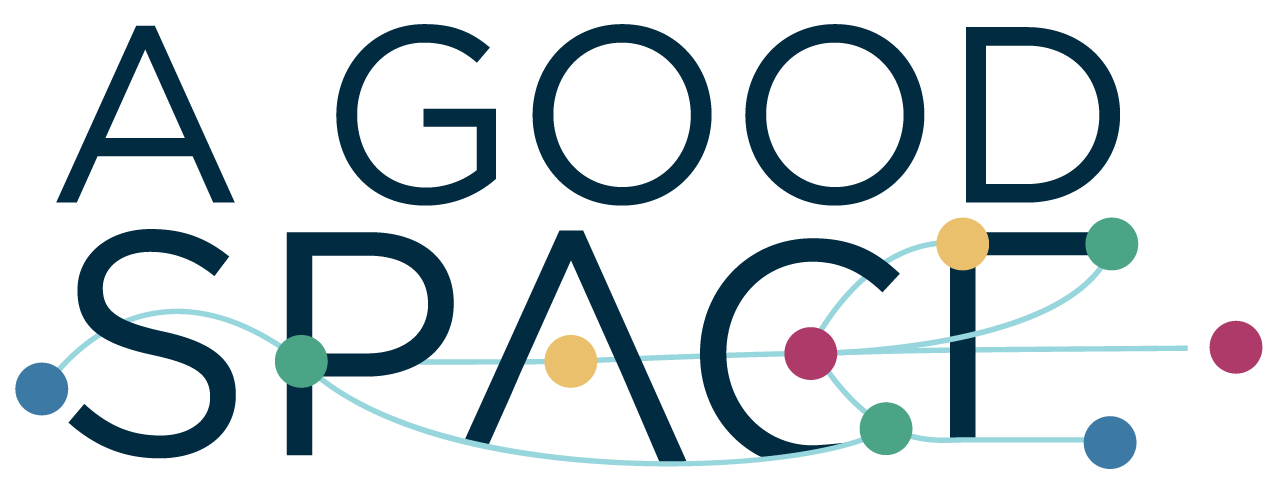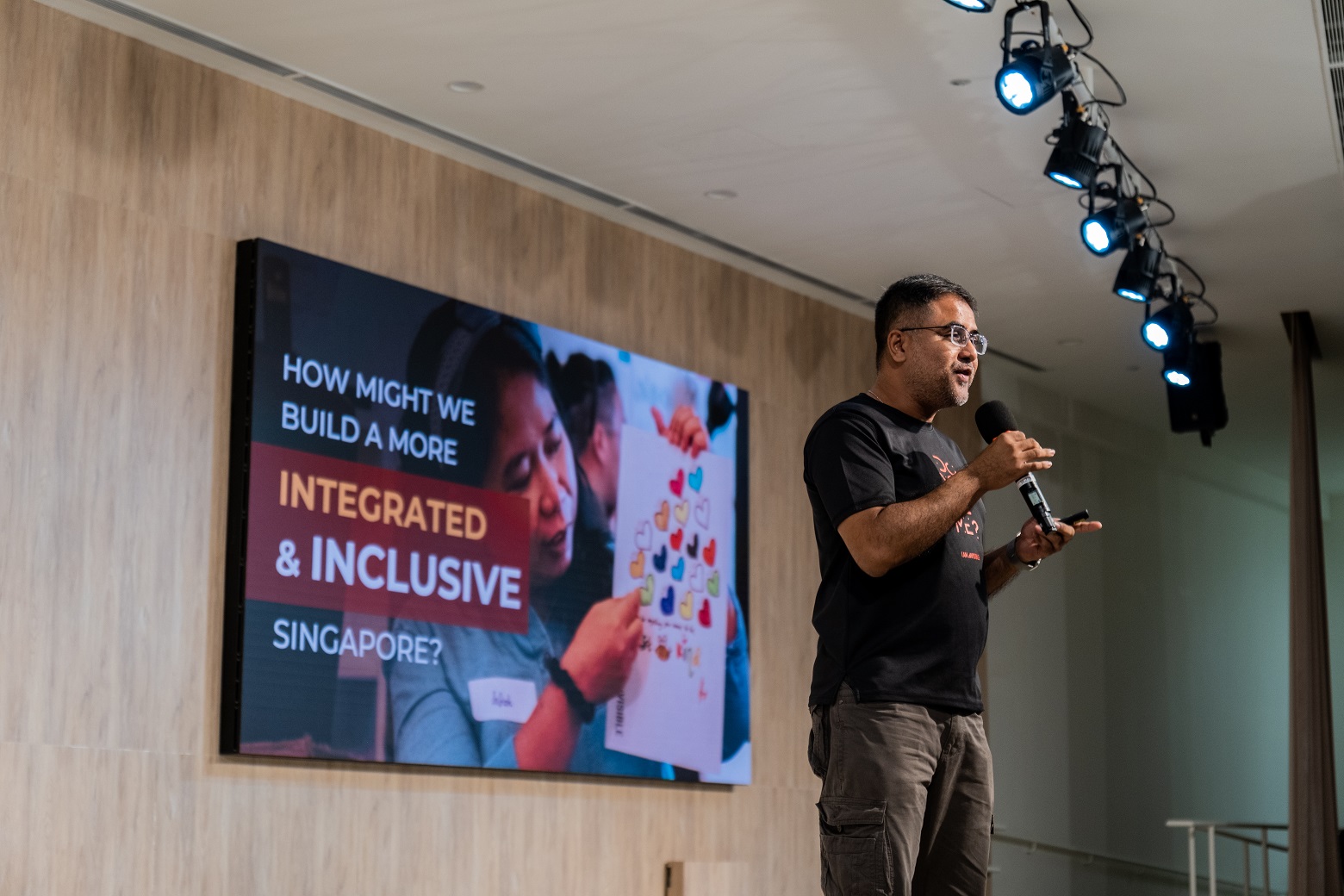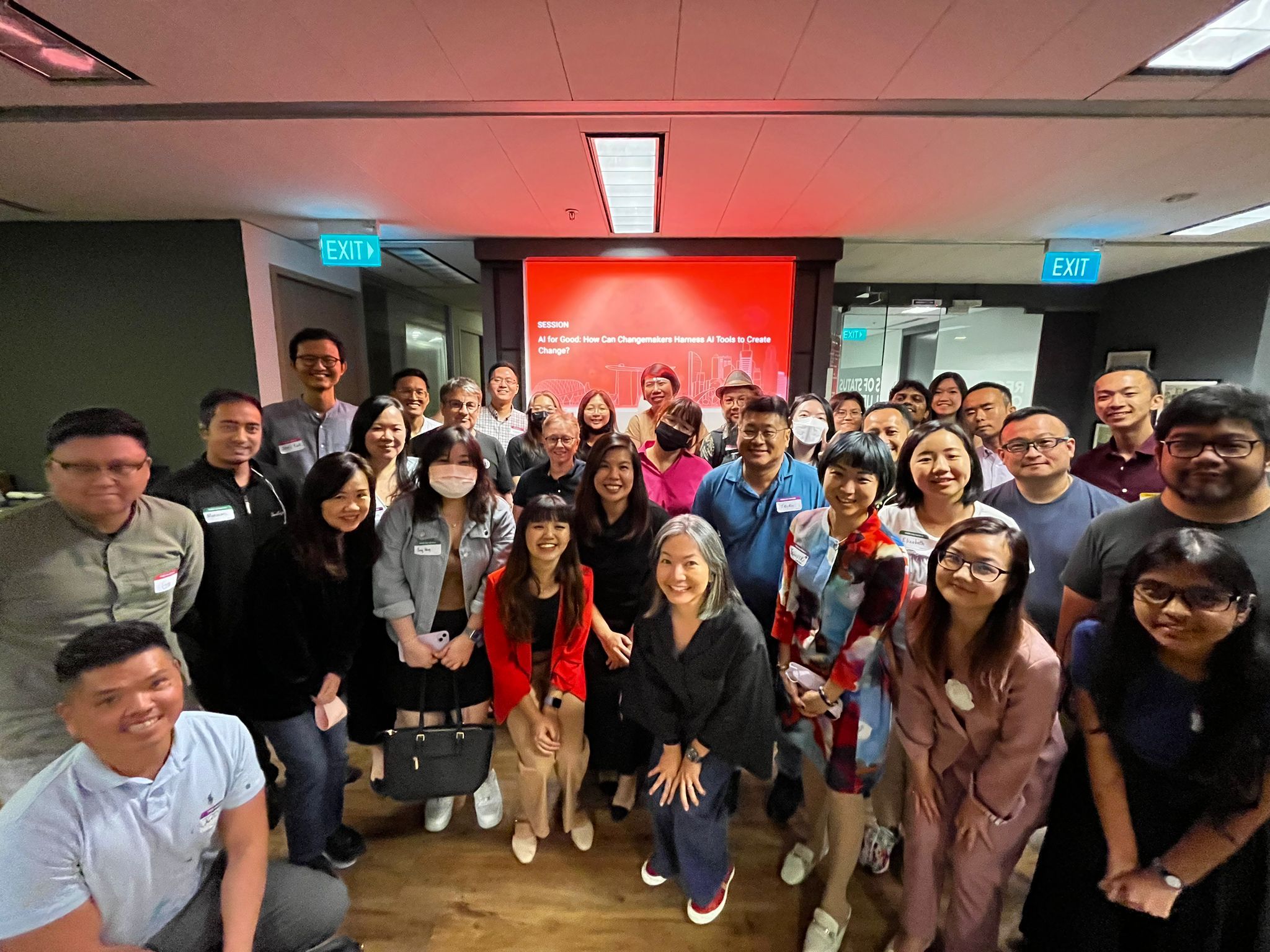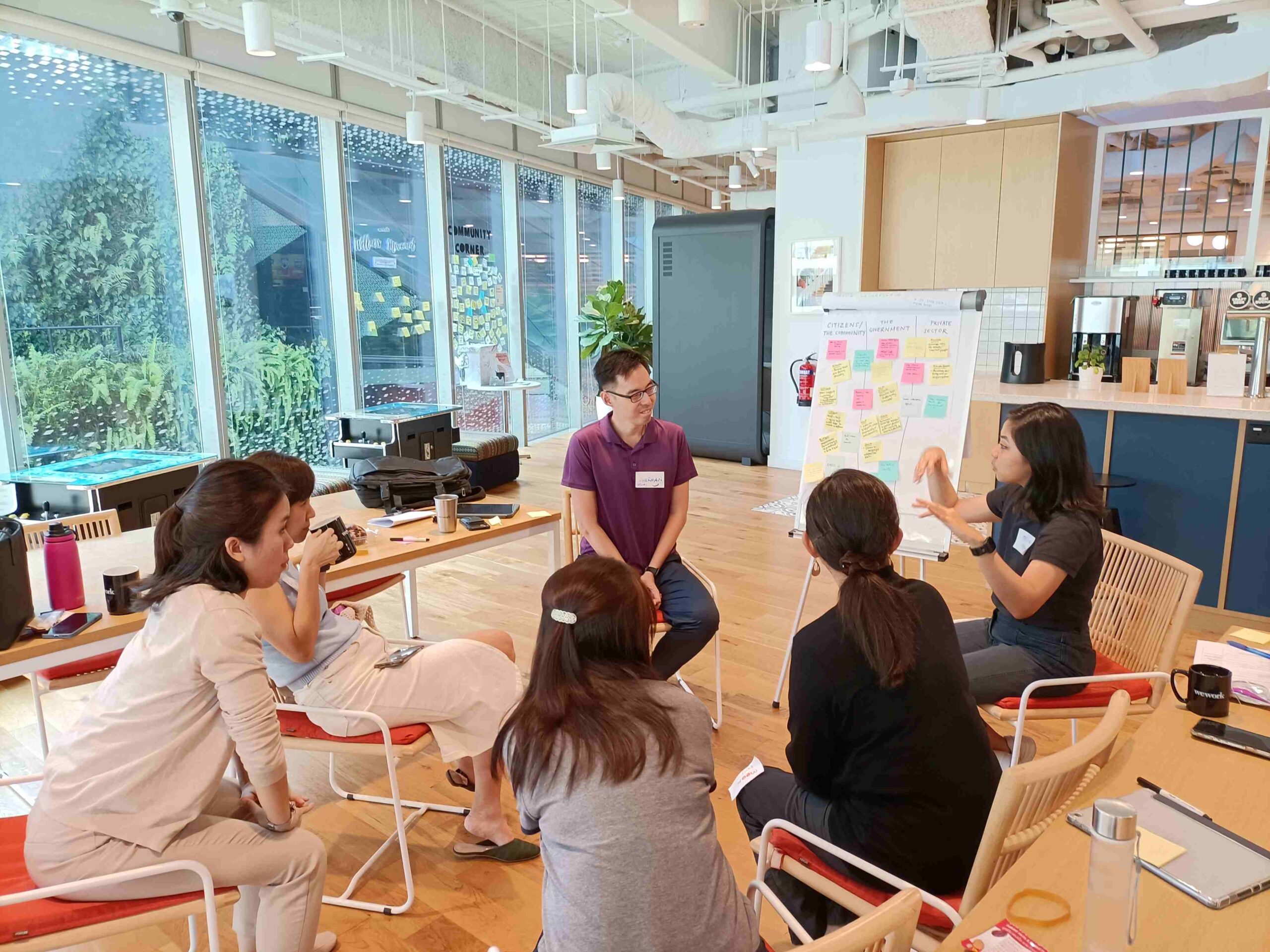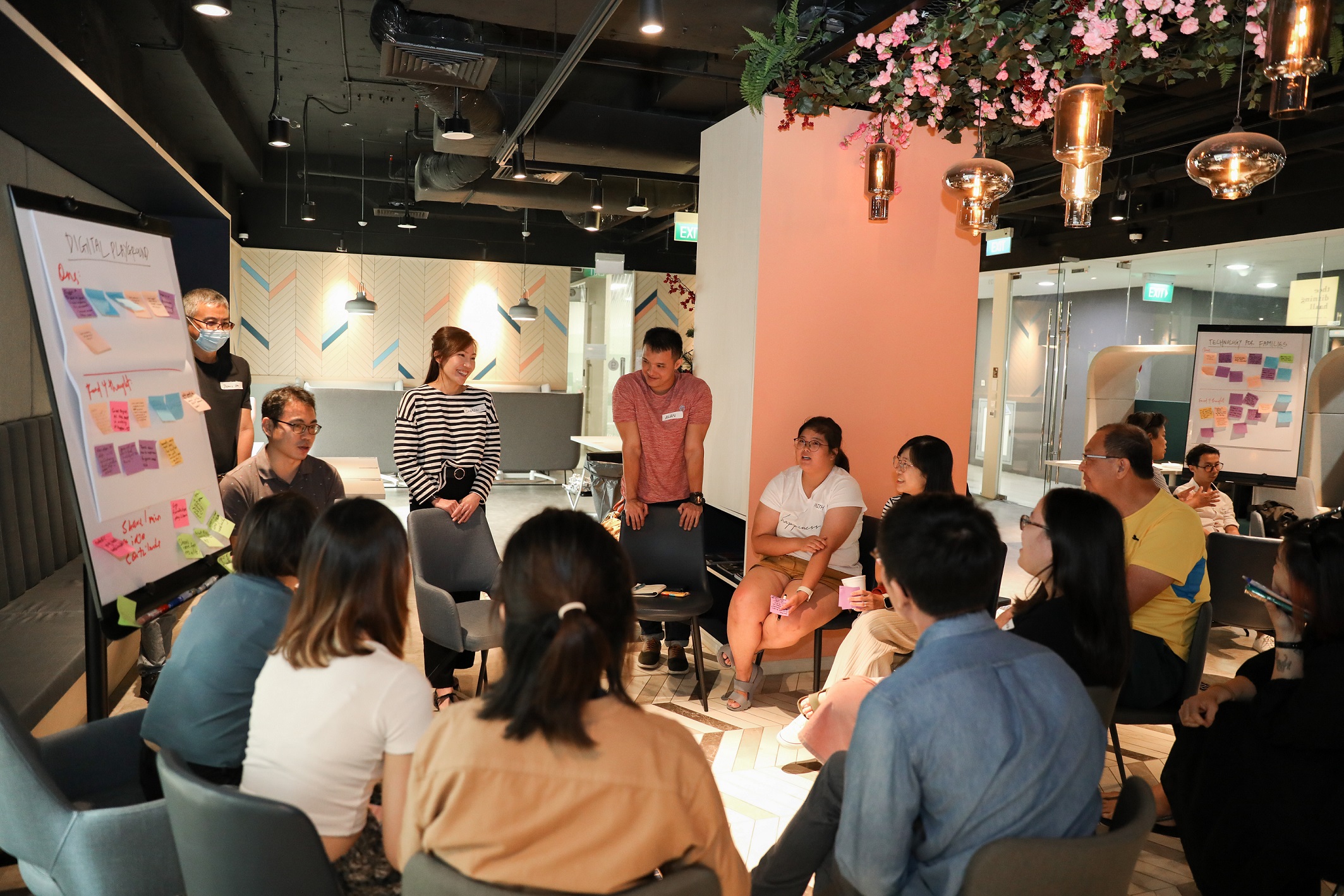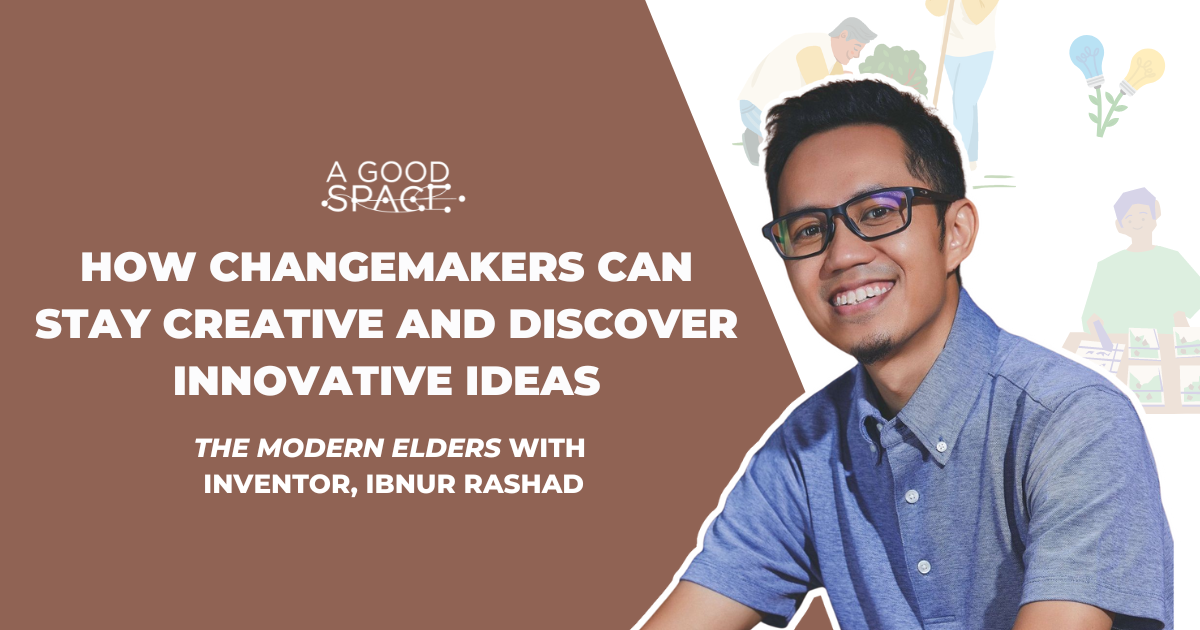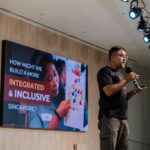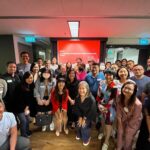Background
When infection clusters first broke out in migrant worker dormitories in early 2020, several of our changemaker members were involved in fundraising efforts to distribute food, care packs and essentials to migrant workers stuck in hundreds of these dormitories across Singapore.
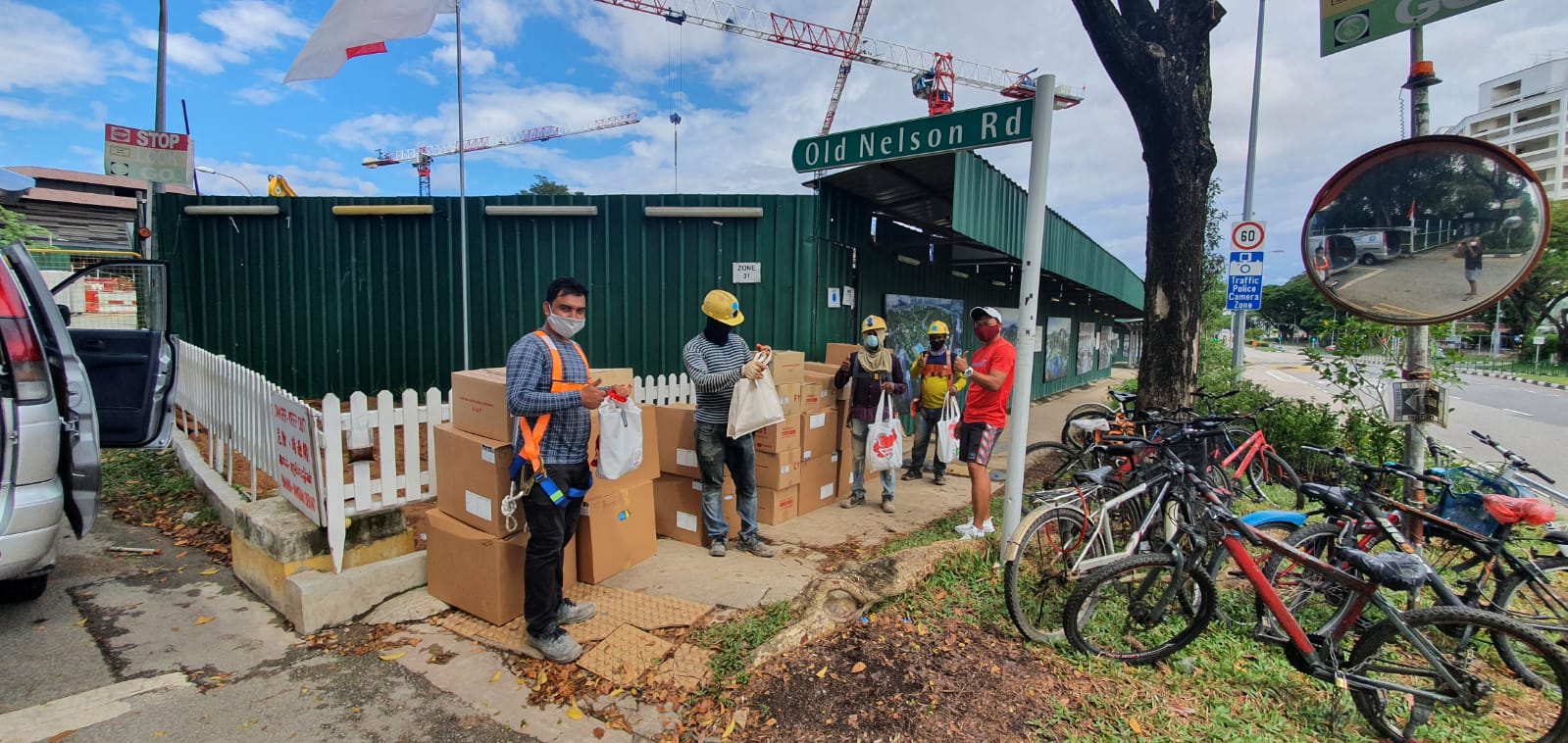
Because of this, we started learning about the complexity of issues faced by our migrant workers, many which cannot be solved by a single organization alone. Beyond providing short-term aid through masks and food, we wondered: “what more can we do to create longer-term change?”
Over 3 workshops across the last 6 months, we gathered people from different sectors – NGOs, government agencies, employers, dorm operators and migrant workers themselves to identify key issues affecting migrant workers in Singapore.
Following that, they generated preliminary ideas to address these key issues. And finally, they formed teams to work on these ideas to make Singapore a better place for migrant workers to work and live in.
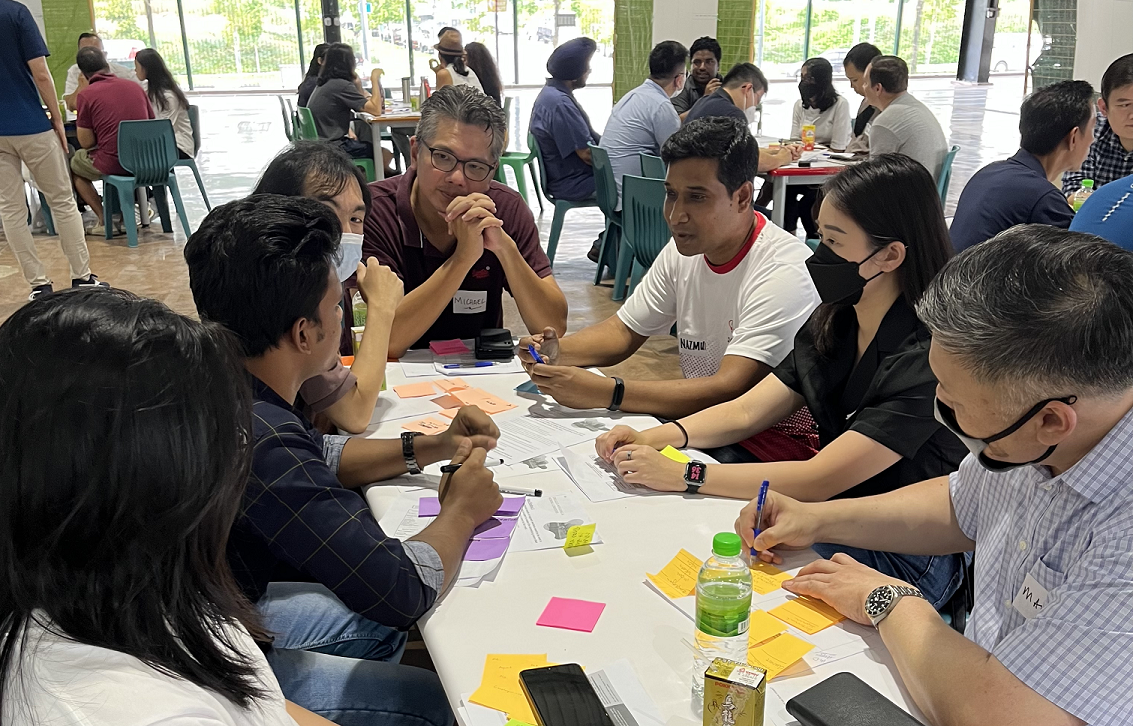
In total, three teams were formed and on Sunday, 9th October, we organized the fourth workshop to give them an opportunity to pitch their ideas to a room of around 41 funders, resource persons and potential volunteers. Here’s what happened:
Writing a letter to your future self
Before the pitches began, we wanted to create a space of reflection for the teams and audience members. We started by inviting leaders of the three teams to share one memorable moment from their journey thus far.
After that, we invited each person present to write a letter to their future selves, with the prompt: “Imagine it is April 2023, what have you contributed in making Singapore a more welcoming place for migrant workers?”
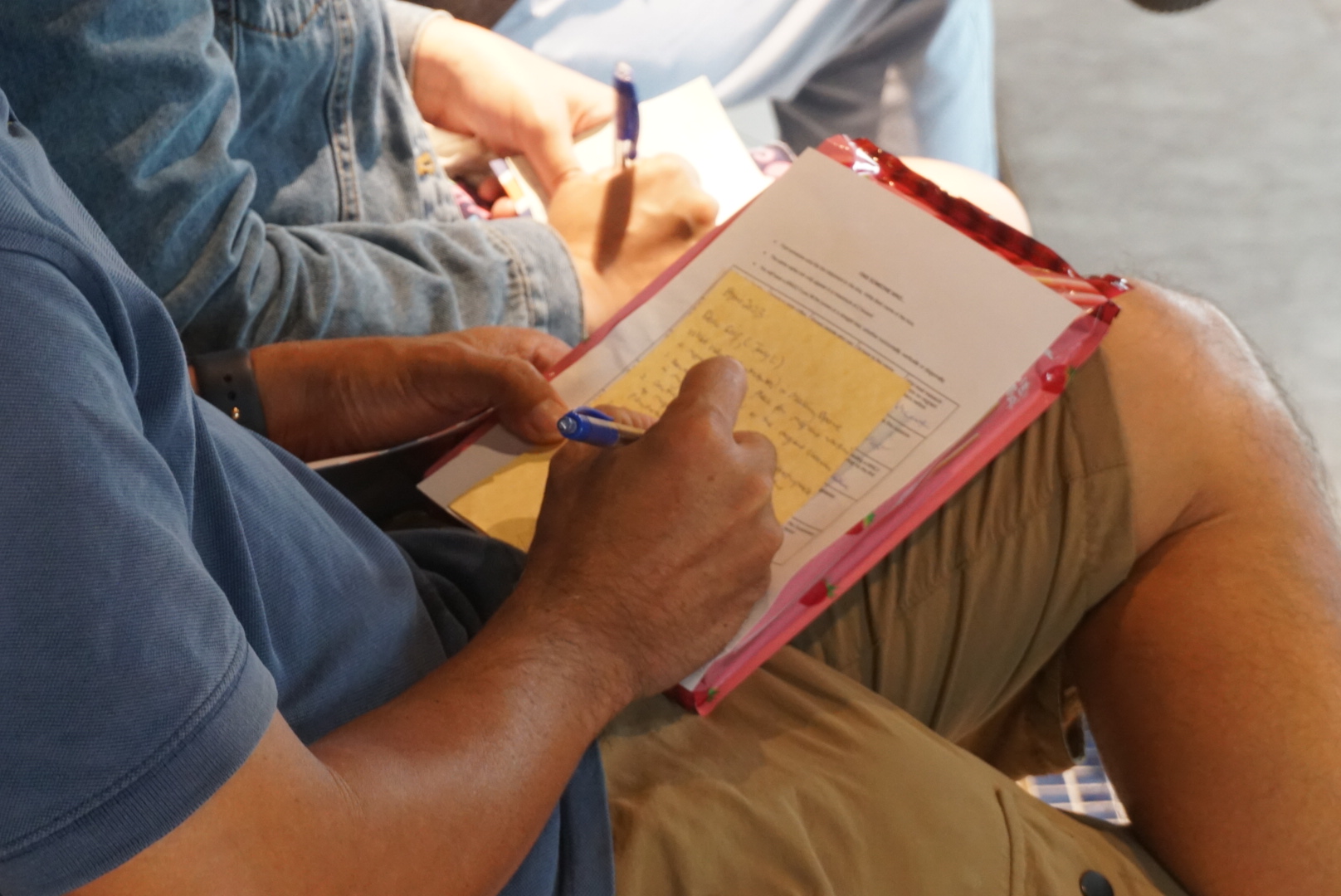
We’ll be mailing them their letters in April next year. Hopefully it’ll be a pleasant surprise and reminder of their ability to always do what they can, from where they are, with what they have.
Idea 1: Enable domestic workers to view the hiring history of their employer
The pitching began with Team History Buffs, a team comprising lawyers, social workers and employment agents, led by Bhing Navato, a domestic worker who’s worked in Singapore for 27 years.
The issue they observed was that currently, it is difficult for domestic workers to access the hiring history of their potential employers, which is unlike how employers can access the employment history of a domestic worker.
This imbalance can put domestic workers in vulnerable situations, especially when potential employers could have mistreated previous domestic workers but were not reported.
“I had a domestic worker tell me about how she was molested by her employer. She was so scared to report them so she requested an employer transfer and got it. But then a few months later, that same employer got another domestic worker, who didn’t know any of this,” said Bhing.
“Others weren’t fully told that they had to take care of seniors and pets in the household as part of their job, significantly increasing their workload and stress. But most will not want to complain because they are afraid they will lose their job,” she added.
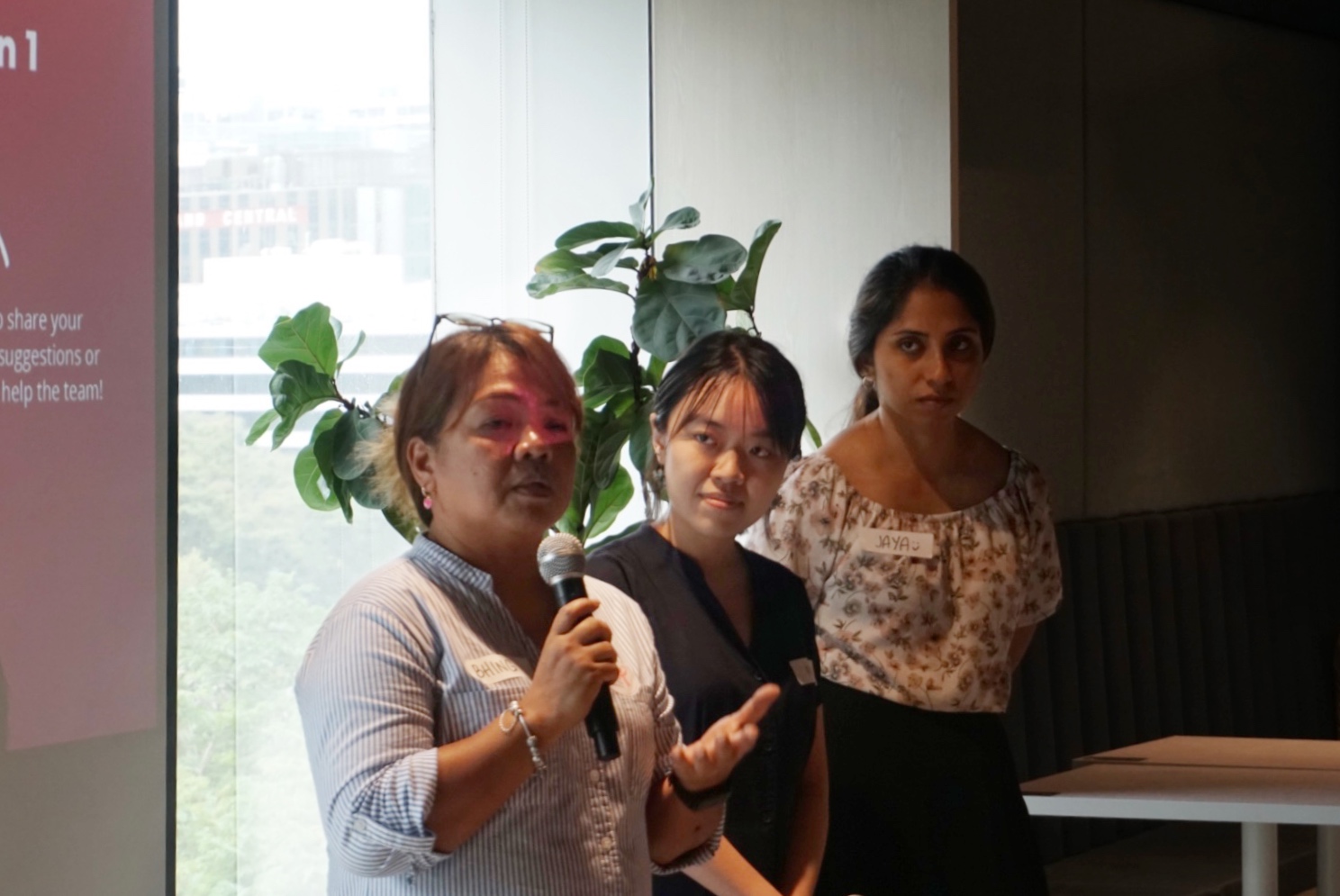
The Ministry of Manpower (MOM) currently has several measures in place to protect the well-being of domestic workers and improve the chances of better matching between worker and employer. For example, all first-time domestic workers must attend an interview with a case worker who will enquire about her well being and remind her of her rights.
MOM also considers employers who change domestic workers more than four times within a 12-month period to be “Frequent Change Employers”, requiring them to attend an Employers’ Orientation Programme or an interview before they can employ another worker.
MOM also requires all employment agencies to provide employers of domestic workers a refund option of at least 50% of the service fees paid, if the domestic worker’s employment is terminated within the first six months of employment and they are not a Frequent Change Employer.
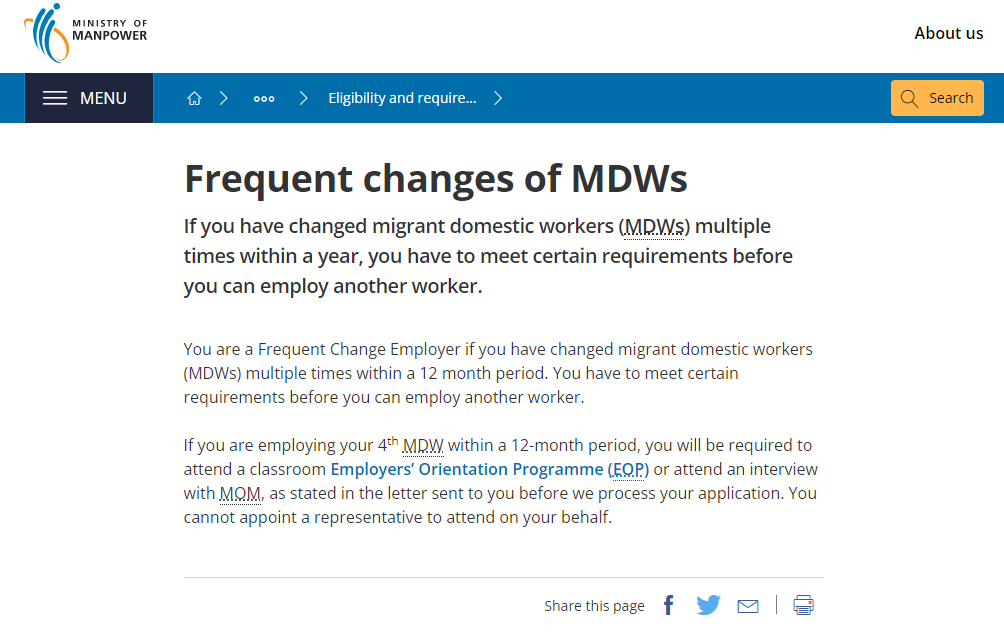
The team’s idea is to build on these measures to enable domestic workers to view the hiring history of their potential employer and in the long term, lobby MOM to make it a requirement for employment agencies to share with domestic workers:
(i) the number of domestic workers their potential employer has hired within a certain time period e.g. the last 10 years, (ii) the reasons for termination of previous domestic workers, (iii) their living conditions – where they are expected to sleep, etc and (iv) whether they will be expected to perform caregiving for seniors, children or pets.
Before the pitch, they conducted a survey of 32 employers to ask if they were willing to let domestic workers view their hiring history and their concerns, if any. Of the 32 employers surveyed, almost 87.5% (28) said Yes and 12.5% (4) said No. Here are some of the concerns that they mentioned:
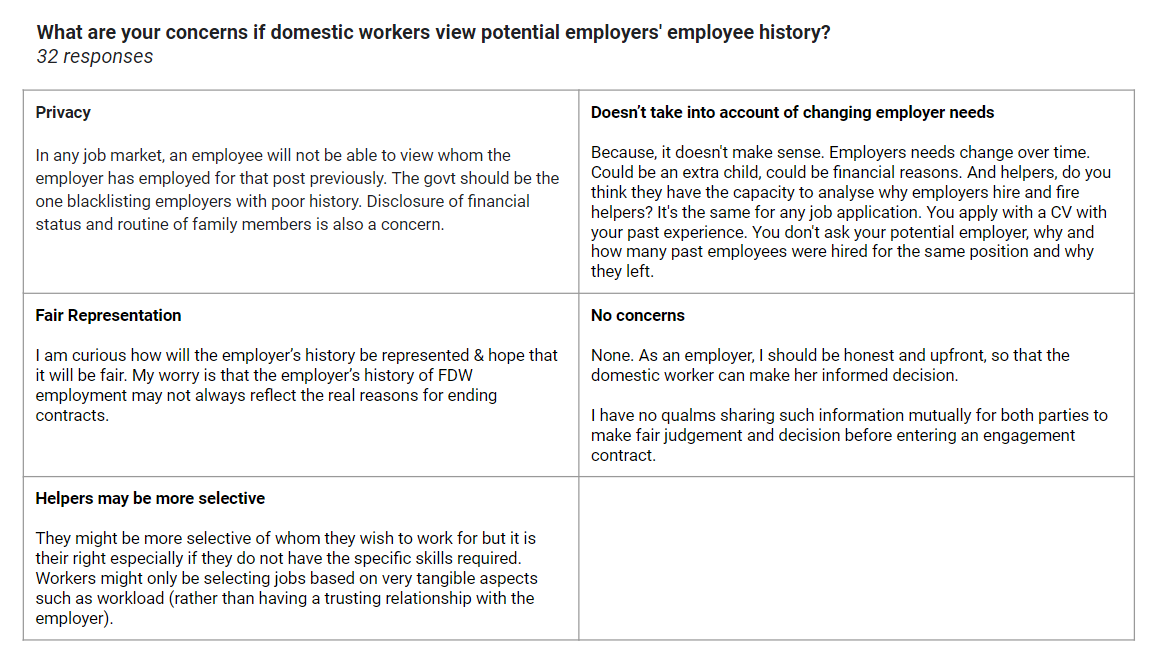
Over the next 6 months, the team hopes to get 3 – 5 employment agencies on board to pilot this initiative and conduct surveys of more employers and employment agencies to gather their concerns or support for this idea.
They hope this will level the playing field for domestic workers and give them the information they need to make an informed choice on their employer.
Idea 2: Create experiential workshops for younger children to learn about migrant workers in Singapore
The next team that went was Team Cool Pot, who identified the issue of migrant workers having limited opportunities for interaction and relationship building with the wider Singapore population, which was also identified in the Building Bridges Report by The Majurity Trust.
This lack of proximity can lead to locals forming stereotypes and negative sentiments towards migrant workers, the very people who built our homes, offices and parks.
The team was made up of psychologists, HR professionals, engineers, artists and led by three Secondary School students: Ayden, Nurani and Gio.
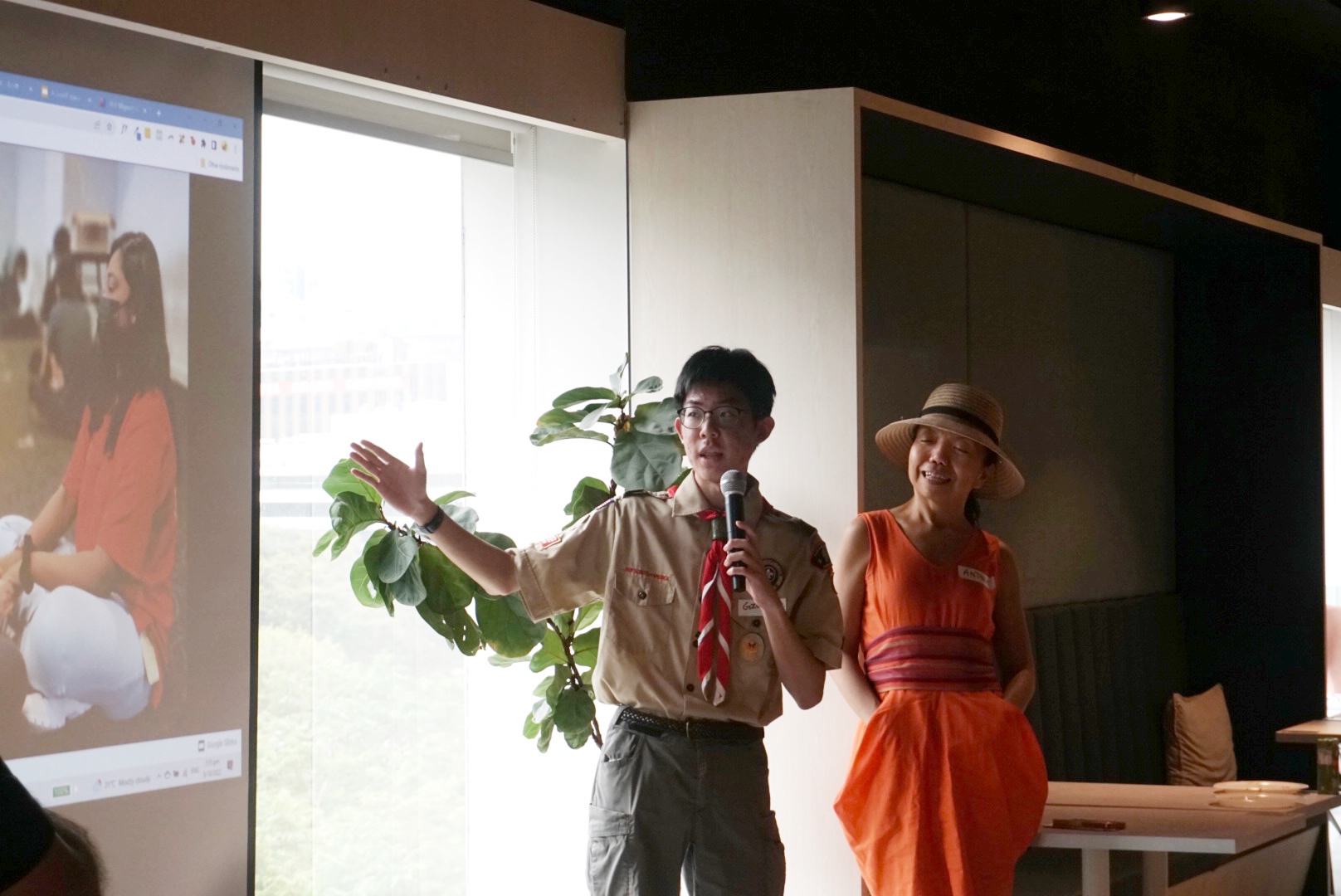
The team identified younger children as a starting point to reverse these negative sentiments. “The young may not have been exposed to any of these stereotypes yet and could be more likely to have an open mind to learn and connect with migrant workers,” said Ashokan Ramakrishnan, a member of the team and current Chairperson of A Good Space.
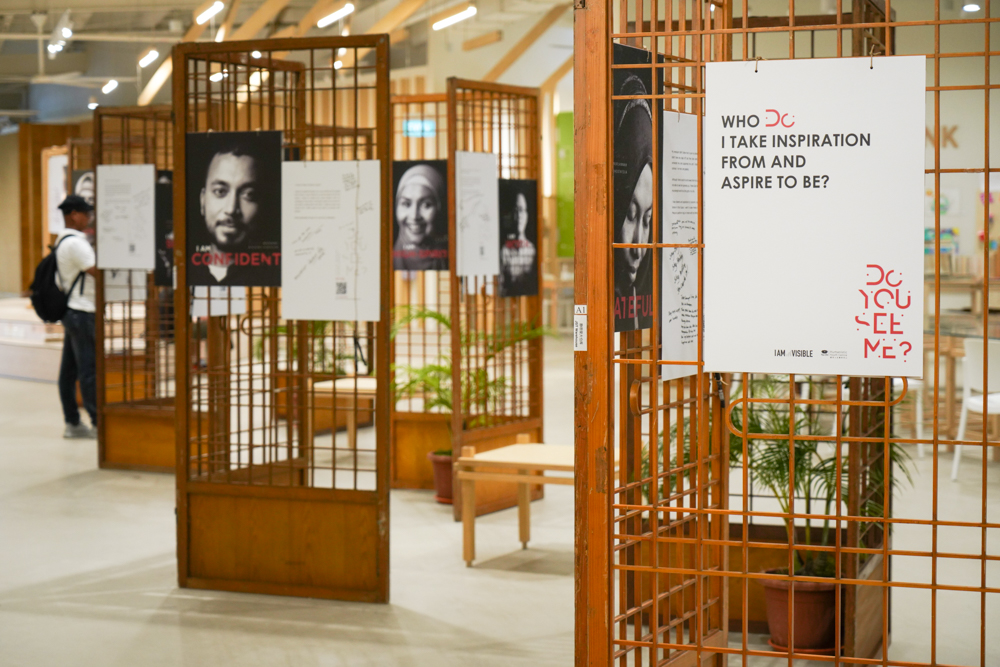
The team’s idea is to create an experiential workshop to help Secondary School students to relate to migrant workers through curated stories and videos that were recently exhibited in the public exhibition, Do You See Me? The students will then be invited to take action – either through attending a meal with a migrant worker or volunteering with a migrant worker organization.
Over the next 6 months, they hope to pilot one workshop at a Secondary School to test out the effectiveness of the program. If successful, they will document the program and share it with other organizations who may wish to replicate it to other schools.
Idea 3: Help migrant workers in Singapore to write CVs to find jobs
The final team that presented was Team Interim Good Company, led by Dr Tan Yan Hao, an engineer by training. After learning about the high recruitment debt that migrant workers often incur to get a job in Singapore;
Which can range anywhere between $6,000 to $10,000 and cause huge stress to workers, he studied several solutions that were looking to solve this – from digital platforms that seek to cut out the middlemen to allow workers to be hired directly by companies in Singapore to Employer Certification Schemes that incentivize ethical hiring.
This issue is complex and despite the best efforts of MOM, businesses and various migrant worker NGOs, it remains unsolved, with a large reason being that many of the middlemen who charge fees to the workers are informal agents (e.g. relatives and friends of the worker) and outside of the jurisdiction of Singapore.
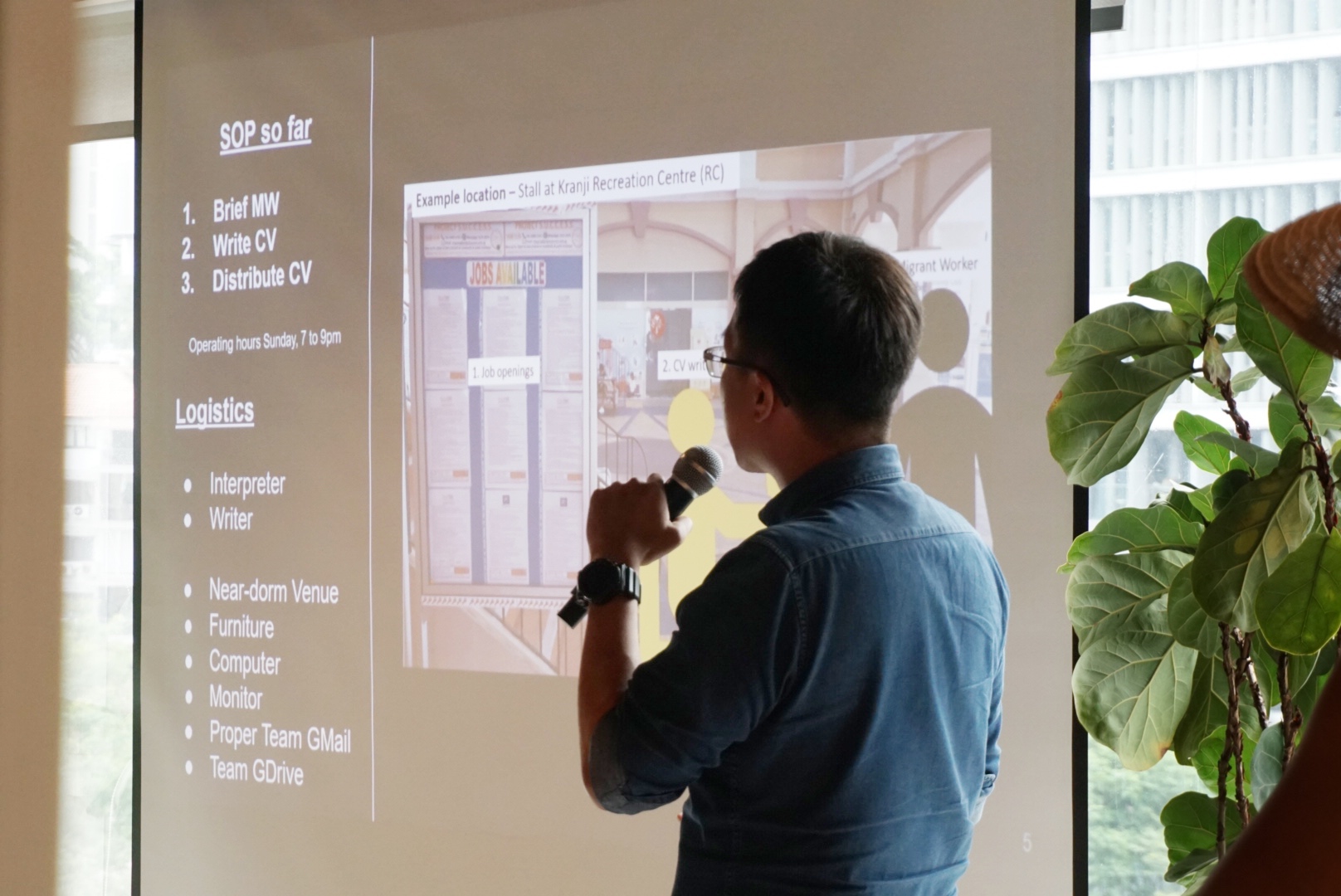
From his informal interactions with employers and experienced migrant workers in the construction sector, Yan Hao identified a possible space for intervention – migrant workers who have completed their contracts often have to incur additional agent fees if they wish to find new jobs in Singapore. Several even go home to their host countries and incur agent fees to come back again.
The team’s idea is to help migrant workers write CVs, which can then be quickly and easily circulated to a curated list of ethical employers to enable the worker to bypass informal agents in their job search. Over the next 6 months, the team aims to write 6 to 30 CVs for migrant workers primarily from the construction, marine and manufacturing sectors, to test the viability of a CV in improving the chances of a worker finding a job without incurring more debt.
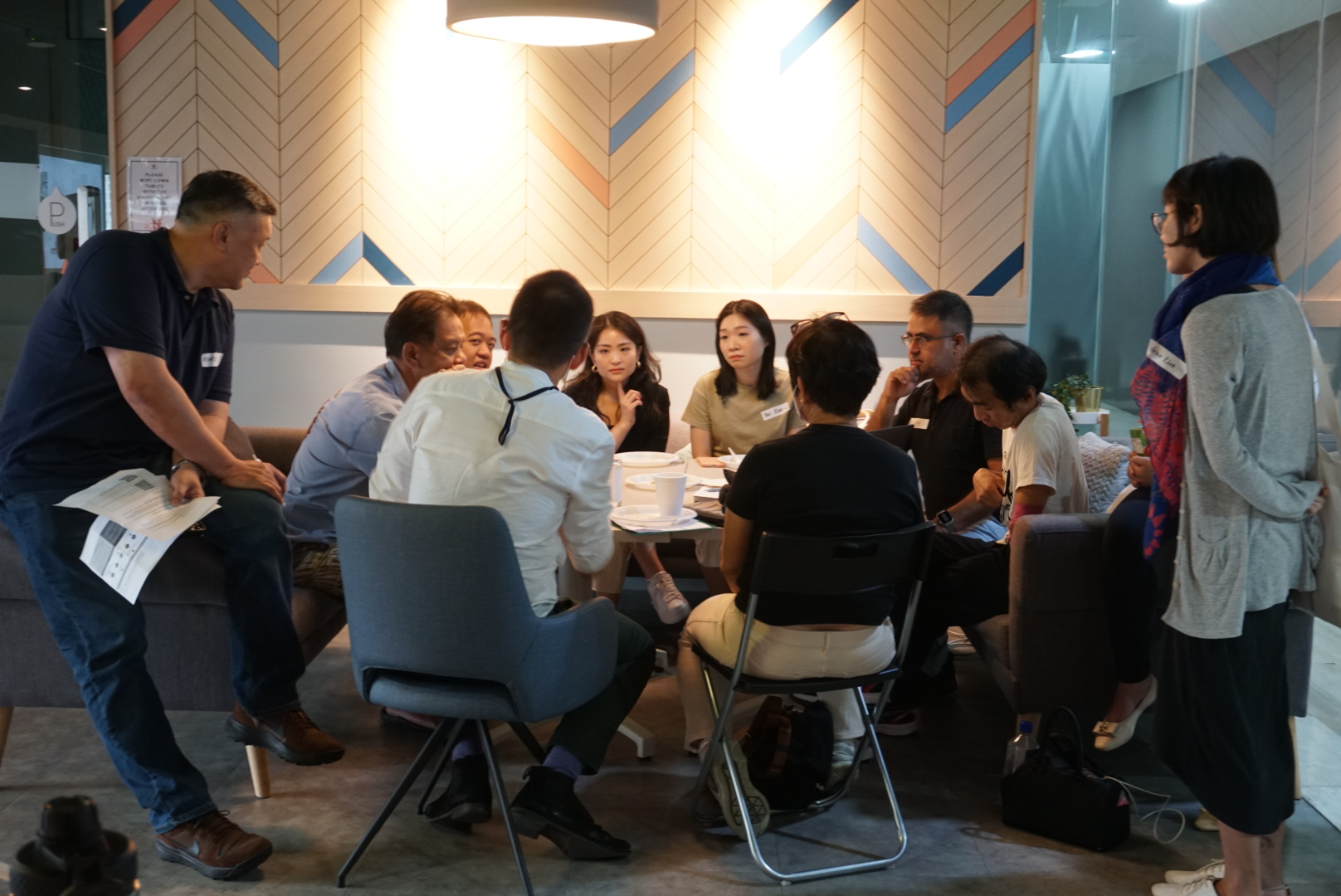
Breakout groups for more in-depth feedback
After the pitches, we broke out into three groups (one per team), to enable audience members to give more in-depth feedback to each of the groups. The conversations were really rich.
For Team History Buffs, two employment agents gave feedback on the team’s idea and expressed interest to pilot it at their agency. For Team Cool Pot, several Secondary School teachers gave advice to the team on how to design their curriculum to better engage Secondary School students and school teachers.
For Team Interim Good Company, some migrant workers and folks from the business sector affirmed the value of a CV for workers and shared some resources and networks that could be useful for the team.
What’s next?
The teams will now begin implementing their idea in a 6-month prototyping phase. We are grateful to the US Embassy’s Alumni Community Project Fund (ACPF) for providing some funding for us to support the teams during this prototyping phase. MOM has also expressed interest to have their representatives meet with the three teams to learn more about their projects and explore avenues of support.
In the longer term, we hope to harvest the lessons learnt from the prototypes created by these three teams and if successful, rally other key stakeholders in the migrant worker space to consider working together to scale them to more migrant and domestic workers or schools.
If you are interested to support the teams in any way, whether it’s joining the team as a member, sharing knowledge you have about the migrant worker space or connecting them to people who can help with implementing their ideas, please reach out to me at vincentng@agoodspace.org and let’s chat more!
